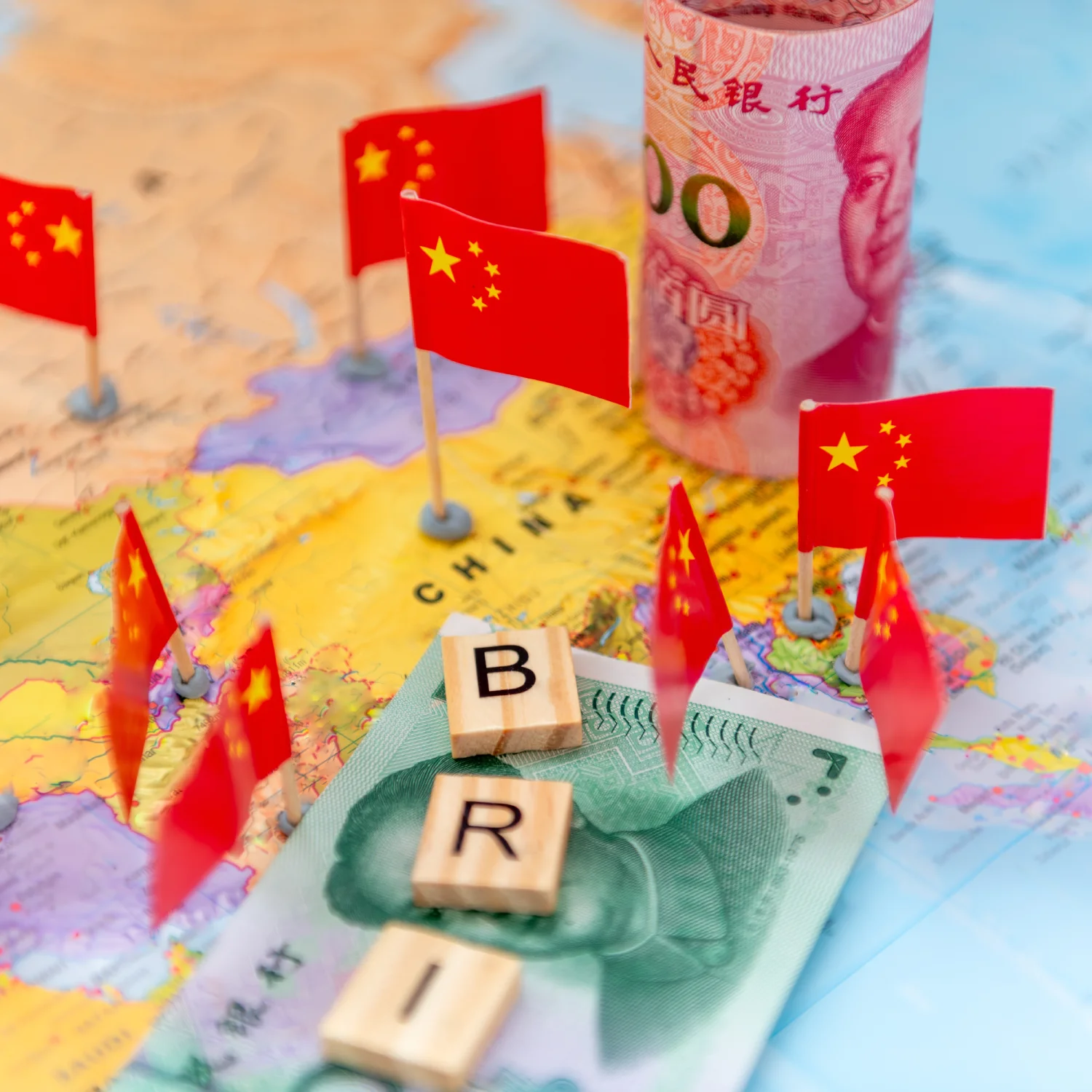The recent diplomatic and technological support provided by China to Pakistan in the latter’s recent military conflict with India has brought into sharp focus the ‘all-weather’ strategic partnership that the two countries enjoy. The successful deployment of a new Multi Domain Operations doctrine, developed jointly by the Chinese and Pakistani armed forces, has profound implications for the balance of power in Asia. Analysts like Pravin Sawhney have noted that since the 2019 Balakot Airstrikes, Pakistani officers have worked closely with the People’s Liberation Army to integrate advanced digital warfare systems. Yet this relationship is neither a recent development nor confined to military cooperation. Rather, it is the culmination of decades of trust-building, diplomatic alignment, and shared strategic interests. From cautious beginnings in the mid-20th century to one of the most enduring state-to-state partnerships of the modern era, the China-Pakistan bond has evolved into a multifaceted alliance. In this series, we will trace the origins and evolution of this unique partnership and examine how geopolitics, economic collaboration, and mutual security concerns have shaped this “Iron Brotherhood”.
Setting the stage
There are many epithets, all of them positive, used by the political leaderships of both Pakistan and People’s Republic of China (PRC) to describe the relationship between the two countries. “Iron brothers”, “friendship higher than the Himalayas, sweeter than honey”, “all weather friendship”, “good friends, good partners and good neighbours” and several other such terms are often used by officials to highlight the strong nature of the bilateral relationship between PRC and Pakistan.

There is also consensus among scholars of Sino-Pakistan relations that the partnership between the two countries is of a “truly special character.” It is described as the most “stable and durable” element of China’s foreign policy relations. John Garver, an eminent scholar of Chinese foreign policy, writes, “Beijing has been consistently willing to set aside ideological considerations, minimise or ignore clashes between Chinese and Pakistani policies in many secondary areas, provide Pakistan with a relatively high level and wide array of support, and restrain in truly exceptional ways the passions arising from Chinese domestic political strife.”
William J. Barnds writes, “[For China] former friends have become enemies and former enemies have become, if not friends, at least less dangerous antagonists. Yet China’s relations with Pakistan, while not always smooth, have evidenced a high degree of stability.”
Further, Rajshree Jetly writes, “Sino-Pakistan relations stand out as one of the few enduring friendships that have withstood the pressures of time and shifting geostrategic conditions.”
There are two important ways to examine the close friendship between China and Pakistan, and it is useful to separate the two, at least for the time being: first, through the calculations of offensive and defensive power in world politics, and second, through national interests beyond military concerns.
Pakistan became the first Muslim country to recognize the PRC, doing so on January 4, 1950, mere days after India. Initial contacts between Pakistan and Communist China had been facilitated by their respective embassies in the Soviet Union. However, Pakistan’s decision was driven less by ideological alignment than by cold strategic calculations, particularly its rivalry with India over Kashmir.
In the former category, this all-weather, durable friendship is often reduced to the old dictum “the enemy of my enemy is my friend”. The ‘enemy’ in this instance is India—a neighbouring giant for both countries. For example, Garver writes, “At the foundation of the stable Sino-Pakistani entente is the utility of that association to both its principals in dealing with India. Militarily, a strategic partnership between China and Pakistan presents India with a two-front threat in the event of a confrontation with either. A strong Pakistan, independent of and hostile to India, severely constrains India’s ability to concentrate its forces against China in the event of a China-India war. Conversely, a militarily potent China aligned with Pakistan constrains India’s ability to concentrate its forces against Pakistan in the event of war.”
Further, Garver argues, that for China there exists another political advantage from the India-Pakistan enmity; that, as long as this rivalry persists, the two countries are compared to one another on international forums, and China is “left apart, in a separate category, either on a higher moral plane or in the category of a greater power.”
It is also useful to examine the importance of Pakistan by zooming out and studying the larger security interests of China in South Asia. Barnds, for example, argues that the value of the subcontinent is greater for China than it is for either the United States or the former Soviet Union.
“The United States has never been directly vulnerable to any threat from South Asia…The Soviet Union was at one time potentially vulnerable to the air power of a hostile great power based in the subcontinent, but the advent of intercontinental missiles has reduced the value of the air bases in the area for such purposes…China, in contrast, can be threatened directly from South Asia,” he writes.
This threat arises specifically from the military challenge presented by India, particularly if India works closely with another major power and moves against China’s outlying areas. This threat is magnified by the very real existence of a border dispute and conflicting territorial claims between China and India.
There are, however, other equally vital national interests that draw China closer to Pakistan, and vice versa.
First Call
Following the Communist victory in China’s civil war, the People’s Republic of China (PRC) was formally proclaimed on September 21, 1949, with its new Central Government officially inaugurated in Beijing on October 1, 1949. The Chinese People’s Political Consultative Conference, responsible for organizing the new state, outlined foreign policy goals centered on safeguarding national independence, freedom, and territorial integrity, promoting international peace and friendly cooperation, and opposing imperialist aggression and war. The PRC declared its readiness to establish diplomatic relations with countries that severed ties with the defeated Kuomintang regime and embraced a policy of equality, mutual benefit, and respect for sovereignty.
In Pakistan, the emergence of Communist China was viewed as part of a broader shift in Asia’s geopolitical landscape. The newspaper Dawn welcomed the prospect of peace in China and noted in an editorial that Pakistan, as part of an increasingly influential Asia, should “naturally seek early diplomatic relations” with the new government. Foreign Minister Zafrulla Khan reinforced this pragmatic stance, urging Western nations in October 1949 to adopt a realistic approach toward recognizing Mao’s government, signalling Pakistan’s willingness to engage with the inevitable new power.
Pakistan became the first Muslim country to recognize the PRC, doing so on January 4, 1950, mere days after India. Initial contacts between Pakistan and Communist China had been facilitated by their respective embassies in the Soviet Union. However, Pakistan’s decision was driven less by ideological alignment than by cold strategic calculations, particularly its rivalry with India over Kashmir. With the UN Security Council actively debating Kashmir, including Resolution 47 (1948), which called for a plebiscite, Pakistan could not afford to let India gain a diplomatic advantage with Beijing. Since the PRC was poised to assume China’s UN seat, Islamabad moved swiftly to prevent New Delhi from monopolizing Chinese goodwill.
Despite recognizing the PRC early, Pakistan did not establish full ambassadorial relations until May 1951, over a year after India. While India-China relations quickly soured over Tibet, Pakistan’s deliberate disinterest in Tibetan affairs allowed it to avoid similar tensions. From the outset, Beijing understood Pakistan’s motivations: its recognition stemmed not from ideological sympathy but from the urgent need to counterbalance India in a region still reeling from Partition’s wounds. Ultimately, Pakistan’s engagement with China was a defensive move, an attempt to gain footing in Asian power politics while ensuring it was not isolated in its existential struggle against India.





